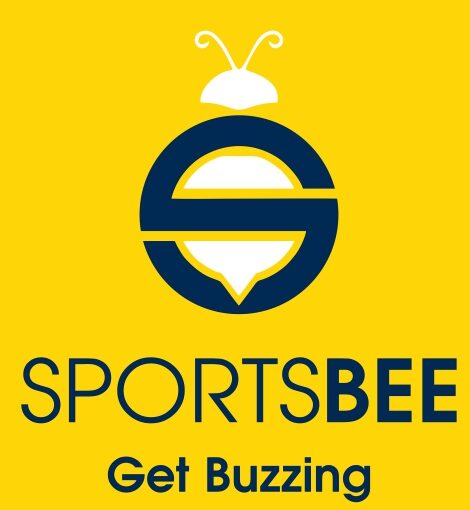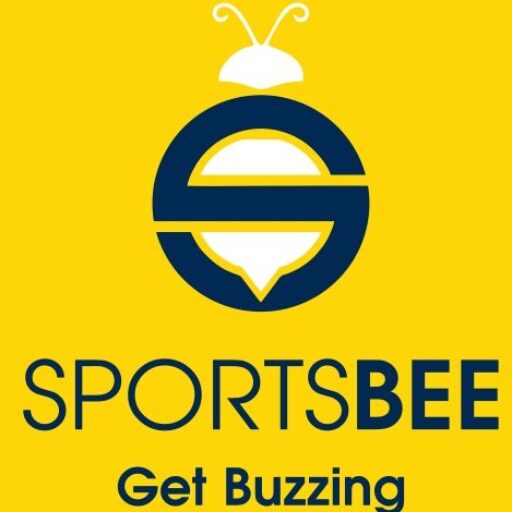India, a nation passionate about cricket, hockey, badminton, and a multitude of other sports, has seen remarkable growth in its sports ecosystem over recent decades. From aspiring young athletes dreaming of Olympic medals to recreational players seeking to improve their skills, coaching plays a pivotal role in nurturing talent and fostering a vibrant sporting culture. But how effective and accessible are sports coaching classes in India? What are the current trends, challenges, and opportunities? In this comprehensive blog, we’ll explore the landscape of sports coaching classes across India, examining their structure, quality, infrastructure, government initiatives, and the role of digital platforms like SportsBee and sportsbee.org in transforming sports education.
The Growing Importance of Sports Coaching in India
India’s sporting ambitions have gained significant momentum, especially with the country’s increasing medal tally at major international events like the Olympics, Commonwealth Games, and Asian Games. Behind this progress is a robust coaching infrastructure that aims to identify talent early, develop skills systematically, and prepare athletes for high-level competition.
However, the quality and accessibility of sports coaching in India vary widely based on geography, socio-economic factors, and the type of sport. While metropolitan cities boast state-of-the-art training facilities and experienced coaches, rural areas often lack basic infrastructure and trained personnel.
Overview of Sports Coaching Classes in India
1. Types of Sports Coaching Classes
- Government-Run Coaching Centers: These are established by sports ministries, state governments, and sports academies. Examples include the Sports Authority of India (SAI) centers and state sports schools.
- Private Sports Academies: Numerous private organizations and coaching institutes offer specialized training across various sports, often providing advanced facilities and expert coaching.
- School-Based Coaching: Many schools have their own sports coaching programs, especially in urban regions, nurturing talent from a young age.
- Online and Digital Coaching: With technological advancements, online classes, virtual training sessions, and mobile apps are becoming increasingly popular, especially post-pandemic.
2. Popular Sports and Their Coaching Ecosystem
- Cricket: The most popular sport in India, with a vast network of cricket academies, ranging from informal coaching to professional franchises like the Indian Premier League (IPL) academies.
- Hockey: Once India’s national sport, hockey coaching centers are operated by SAI and various state bodies.
- Badminton: Rapidly growing with dedicated coaching centers in urban centers and government support.
- Football: Gaining ground thanks to initiatives like the Indian Super League (ISL) and academies like AIFF’s developmental programs.
- Athletics, Tennis, Kabaddi, and others: Also developing with targeted coaching programs and infrastructure.
The State of Sports Coaching Classes in India: Analyzing the Landscape
1. Quality and Standards of Coaching
The quality of coaching varies significantly:
- High-Quality Coaching: In metropolitan cities like Delhi, Mumbai, Bangalore, and Pune, there are reputed academies run by former athletes, experienced coaches, and sports scientists.
- Inconsistent Standards: Many coaching centers lack qualified trainers, modern facilities, and scientific training methods, especially in rural and semi-urban areas.
- Lack of Certification: There’s no uniform accreditation system for sports coaches across India, leading to disparities in skill and professionalism.
2. Infrastructure and Facilities
- Modern Infrastructure: Elite academies and national training centers boast state-of-the-art gyms, turf grounds, swimming pools, and sports science labs.
- Limited Facilities: Many grassroots centers operate in inadequate spaces with minimal equipment.
- Urban-Rural Divide: Rural regions face significant infrastructural deficits, hindering talent development.
3. Cost and Accessibility
- Expensive Training: Top-tier coaching classes can be costly, often limiting access for children from lower socio-economic backgrounds.
- Government Initiatives: Several schemes aim to provide free or subsidized coaching, but coverage remains limited.
- Online Platforms: The rise of digital coaching aims to bridge accessibility gaps, making training more affordable and widespread.
4. Training Methodologies
- Traditional coaching often relied on basic physical drills and skill techniques.
- Modern coaching emphasizes sports science, nutrition, psychology, and data analytics.
- The integration of technology, video analysis, and personalized training plans is gradually transforming Indian sports coaching.
Government Initiatives and Policies Shaping Sports Coaching
India’s government recognizes the importance of quality coaching for sports excellence. Some key initiatives include:
- Sports Authority of India (SAI): Manages national training centers, coaches’ certification, and talent identification programs.
- Khelo India Program: Launched in 2018, it aims to promote sports at the grassroots level, establish sports schools, and develop infrastructure.
- National Sports Talent Search Scheme: Identifies talented young athletes and provides coaching support.
- Coach Education and Certification: The National Institute of Sports (NIS) and other bodies conduct courses to professionalize coaching standards.
Despite these efforts, challenges such as outdated curricula, lack of continuous professional development, and limited reach hamper optimal results.
Challenges Facing Sports Coaching Classes in India
While progress is evident, several hurdles remain:
- Inconsistent Quality: Many coaching centers lack qualified trainers and modern training methods.
- Limited Reach in Rural Areas: Infrastructure and expert coaches are concentrated in urban centers.
- Lack of Standardized Certification: No uniform accreditation system leads to variable coaching quality.
- Financial Constraints: High costs exclude many talented children from access to quality coaching.
- Overemphasis on Select Sports: Sports like cricket dominate attention and funding, neglecting others.
- Inadequate Talent Scouting: Early identification and nurturing of talent remain insufficient.
Opportunities and Future Trends
Despite challenges, the future of sports coaching in India is promising due to several emerging trends:
1. Digital Transformation
- The proliferation of online coaching platforms, mobile apps, and virtual training modules democratizes access.
- Platforms like SportsBee and sportsbee.org are empowering coaches and athletes by offering courses, performance tracking, and community support.
2. Professionalization and Certification
- Increasing emphasis on formal coach education programs and certifications.
- Government and private organizations collaborating to establish standardized coaching curricula.
3. Integration of Sports Science
- Adoption of sports psychology, nutrition, biomechanics, and data analytics enhances training quality.
- Partnerships with universities and research institutions are fostering innovative coaching methodologies.
4. Grassroots Development
- Expansion of Khelo India and similar schemes aims to identify talent early and provide structured coaching.
- Focus on rural and semi-urban areas to nurture diverse talent pools.
5. Private Sector Involvement
- Corporate sponsorships and private academies are investing in high-performance coaching infrastructure.
- Franchises and academies are professionalizing coaching standards.
The Role of Platforms like SportsBee and sportsbee.org
In the evolving landscape of Indian sports coaching, digital platforms like SportsBee and sportsbee.org are playing a transformative role:
- Skill Development: Offering coaching courses, certifications, and training modules for aspiring coaches.
- Community Building: Facilitating networking among coaches, athletes, and sports organizations.
- Performance Monitoring: Providing tools for tracking athlete progress and training outcomes.
- Resource Accessibility: Sharing best practices, videos, and expert advice to improve coaching quality.
- Recognition and Certification: Helping coaches gain credibility through recognized credentials.
- Talent Identification: Connecting talented athletes with coaching programs and opportunities.
By leveraging technology, these platforms are bridging gaps, elevating coaching standards, and making sports education more accessible across India.
Conclusion: The Road Ahead for Sports Coaching in India
India’s sports coaching landscape is dynamic, with significant strides made in recent years. The combination of government initiatives, private sector involvement, technological advancements, and increased awareness about sports science is elevating coaching standards.
However, to realize India’s true sporting potential, concerted efforts are needed to address existing challenges:
- Standardize coaching qualifications across sports.
- Expand infrastructure and training facilities to rural and underserved areas.
- Make coaching affordable and inclusive.
- Embrace modern training methodologies integrated with sports science.
- Foster a culture of continuous learning among coaches.
Platforms like SportsBee and sportsbee.org are catalysts in this transformation, providing the tools, resources, and community support necessary to nurture world-class athletes and coaches.
In summary, sports coaching classes in India are evolving rapidly, moving towards professionalism, inclusivity, and innovation. With sustained efforts and technological integration, India can build a robust coaching ecosystem that not only produces medals but also promotes lifelong participation and healthy lifestyles for millions of Indians.
Are you passionate about sports coaching? Explore how platforms like SportsBee can help you enhance your skills and contribute to India’s sporting excellence. Visit sportsbee.org today!

